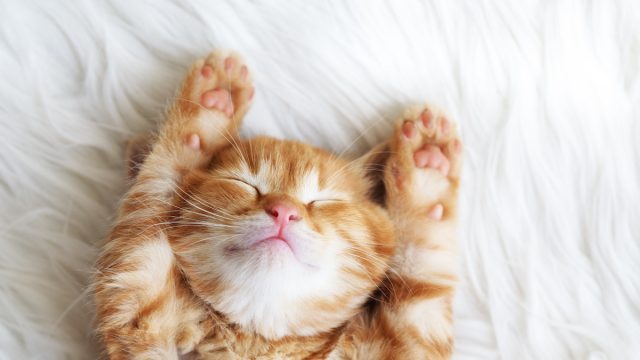How well are you sleeping right now? Are you getting enough sleep, too much sleep or not the right kind of sleep? And why are doctors and scientists always worried about people’s sleep? According to Augusta Health, “Sleep helps control our metabolism and weight, promotes stable moods, helps prevent cardiovascular diseases, boosts our immune system/function, increases knowledge retention, and helps us with long and short-term memory. Sleep is also essential for brain functioning.” If you’re feeling like your sleep could use some attention, here are four strategies to help you get a solid eight hours.
Cut out the Naps
If you have a habit of catching some zzz’s in the middle of the day to make up for a bad night’s sleep, stop it. As neurologist Chris Winter, the founder of Charlottesville [Virginia] Neurology and Sleep Medicine and author of The Sleep Solution: Why Your Sleep Is Broken and How to Fix It explains in this inc.com article, “Take a long nap this afternoon and it’s naturally harder to fall asleep tonight, and the whole process falls apart.”
It might not feel great to suffer each time you have a bad night’s sleep, but if you are constantly napping to catch up on the sleep you’re missing at night, you’ll never get out of the cycle.
Eat something, but not too much
An empty stomach is not going to help you fall asleep or help you stay asleep. Harvard Medical School suggests that eating a little something before bed, just might be the key to getting better rest. “If you’re hungry right before bed, eat a small healthy snack (such as an apple with a slice of cheese or a few whole-wheat crackers) to satisfy you until breakfast.” You should make sure your last large meal of your day is two to three hours earlier than your bedtime. Because eating too close to your bedtime can cause you to have trouble falling asleep as well.
Set Up Your Bedroom Like a Prehistoric Sleep Cave
A Prehistoric Sleep Cave, really? Yep. Amerisleep says, “No television, laptops, tablets, or smartphones should be on when it’s time to sleep. Use blackout shades or an eye mask if your room can’t achieve total darkness, or if your wake up time is well past sunrise.” The other part of the “Sleep Cave” is getting into the habit of dimming lights at least 30 minutes before you want to sleep. You’re signaling to your body that it’s bedtime. Lastly, Amerisleep says that you should try using apps like f.lux on computers to minimize light’s impact, and switching lamps to dimmer, warmer-colored bulbs.
Try Progressive Relaxation Techniques
The Mental Health Foundation in the UK recommends trying Progressive Relaxation when you’re having difficultly falling asleep. If you often find yourself lying in bed staring at the ceiling, or getting more and more anxious as the minutes tick by and you’re still not asleep, you might want to check out this free Podcast to learn some of the recommended techniques.
The National Institutes of Health estimates between 50 million to 70 million Americans suffer (whether they realize it or not) from chronic sleep deprivation. You don’t have to fall into this category if you prioritize finding a schedule and strategy for falling asleep that works for you. Try one or more of our tips, and let us know if you’re sleeping better!

